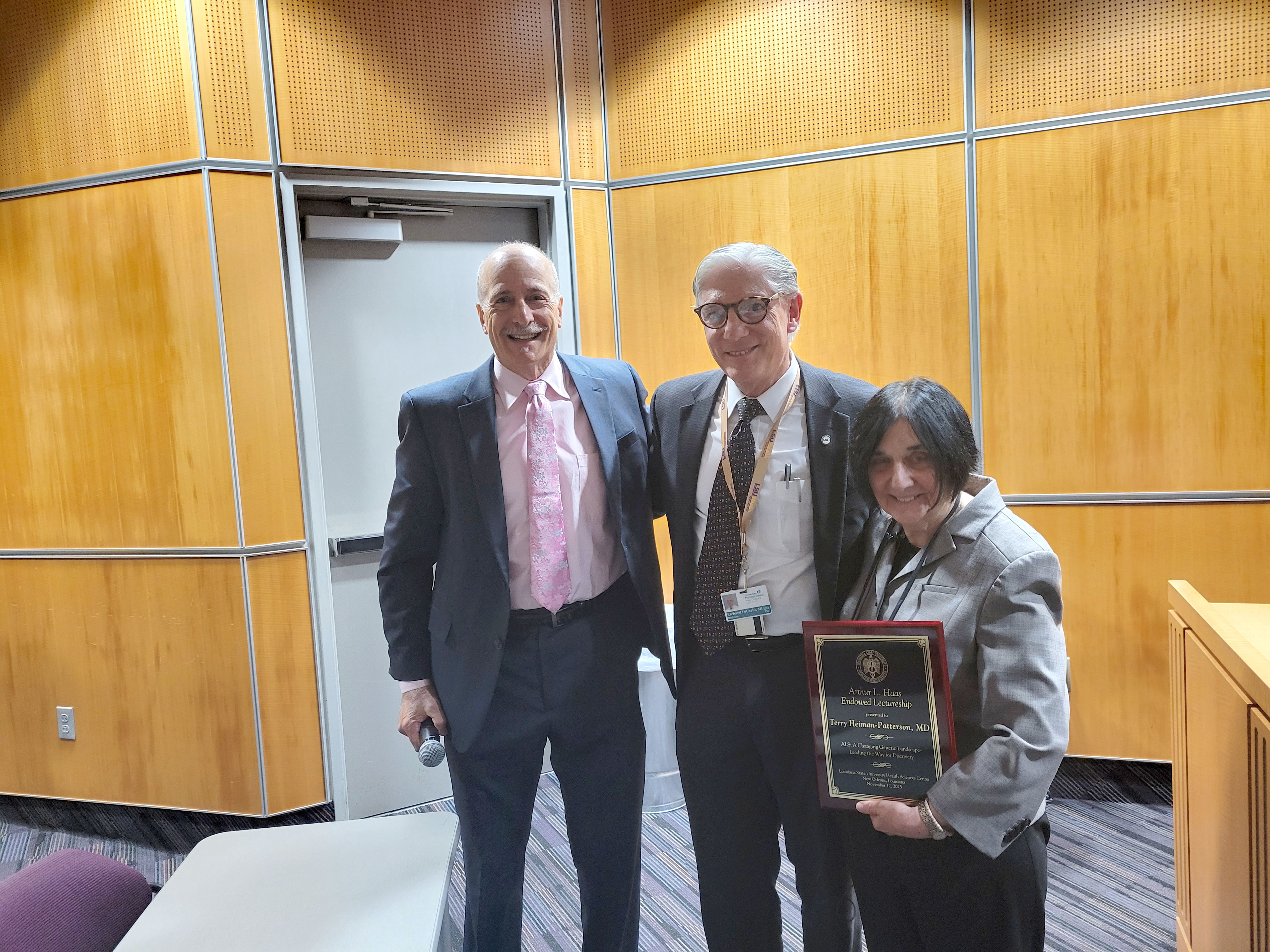Arthur L. Haas Endowed Lectureship
The LSU School of Medicine and LSU Health Sciences Center announced the establishment of the Arthur L. Haas Endowed Lectureship in 2014. An anonymous donor made a $100,000 gift to fund this lectureship in honor of Dr. Haas' illustrious career in research, mentoring, and academic leadership and to support higher education within the School's membership and the New Orleans public. University-wide endowed lectureships are rare, and this is the first major philanthropic contribution to the basic science departments at the LSUHSC School of Medicine. The Haas Endowed Lectureship is awarded to outstanding scholar-teachers. Honorees mirror and embody Dr. Haas' dedication and service to scientific scholarship and academic leadership.
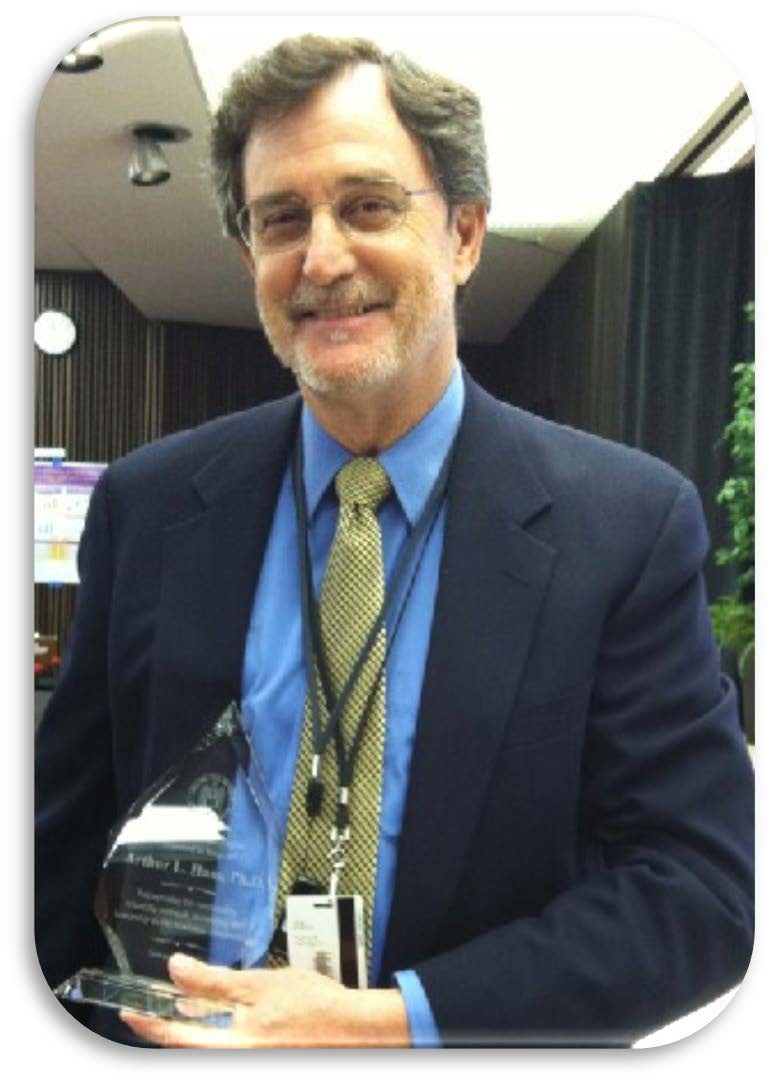
Arthur Haas, PhD, Roland Coulson, Emeritus Professor
Biography
Dr. Haas obtained his Bachelor of Science in Biochemistry from Texas Christian University in 1974. His Doctorate in Biochemistry was awarded in 1979 by Northwestern University School of Medicine in Chicago. From 1979 to 1983, Dr. Haas was on the staff of the Institute for Cancer Research of the Fox Chase Cancer Center in Philadelphia where he was a NIH postdoctoral fellow. During this time, he co-discovered the role of ubiquitin in protein turnover with Irwin Rose, Avram Hershko, and Aaron Ciechanover, who shared the 2004 Nobel Prize in Chemistry for this work. Since 1983, he has been a faculty member in the Department of Biochemistry at the Medical College of Wisconsin and in 2004 joined the LSU Health Sciences Center as Roland Coulson Professor and Head of the Department of Biochemistry & Molecular Biology. In 2020, Dr. Haas has authored over 120 papers, reviews, and book chapters focused on cell regulation by ubiquitin and other Class 1 ubiquitin-like proteins, particularly ISG15. He has also served on numerous editorial boards, study sections, and scientific advisory panels in addition to visiting professorships at the University of Coimbra (Portugal), and the Institute of Biological Chemistry of the University of Urbino, Italy.
Research Interests
Ubiquitin and ISG15
Ubiquitin is a highly conserved 8600 dalton polypeptide distributed throughout eukaryotes. The biological effects of ubiquitin are exerted through a unique post-translational modification in which ubiquitin is covalently ligated to free amino groups on various intracellular target proteins in an ATP-coupled reaction. The end result of ubiquitination is degradation of the target protein by the 26S proteasome, which recognizes multi-ubiquitinated proteins and degrades them to small peptides. The ubiquitin chain is released and is broken up into single ubiquitin molecules which are then reused. The ubiquitin pathway regulates cell homeostasis by promoting the timely degradation of key proteins involved in regulating various vital cellular processes such as cell cycle and death, DNA replication, repair, and transcription, and immune regulation, among numerous others.
A second constitutive system within cells that is parallel but distinct from ubiquitin in which the 15 kDa interferon-stimulated protein ISG15/UCRP is conjugated to a subset of intracellular targets. ISG15 is the archetype of a small group of function-specific ubiquitin-like proteins (Ubls) that includes SUMO-1 and Nedd8. ISG15 conjugation to specific E3 ubiquitin ligases is thought to inhibit their ligase function, thereby impinging on the consequences of ubiquitin conjugation. Consequently, deregulation of the ISG15 pathway has direct impact on the pleiotropic cellular functions of ubiquitin, thus leading to several human diseases including cancer and neurodegeneration.
Upcoming Speakers
TBD
Previous Speakers
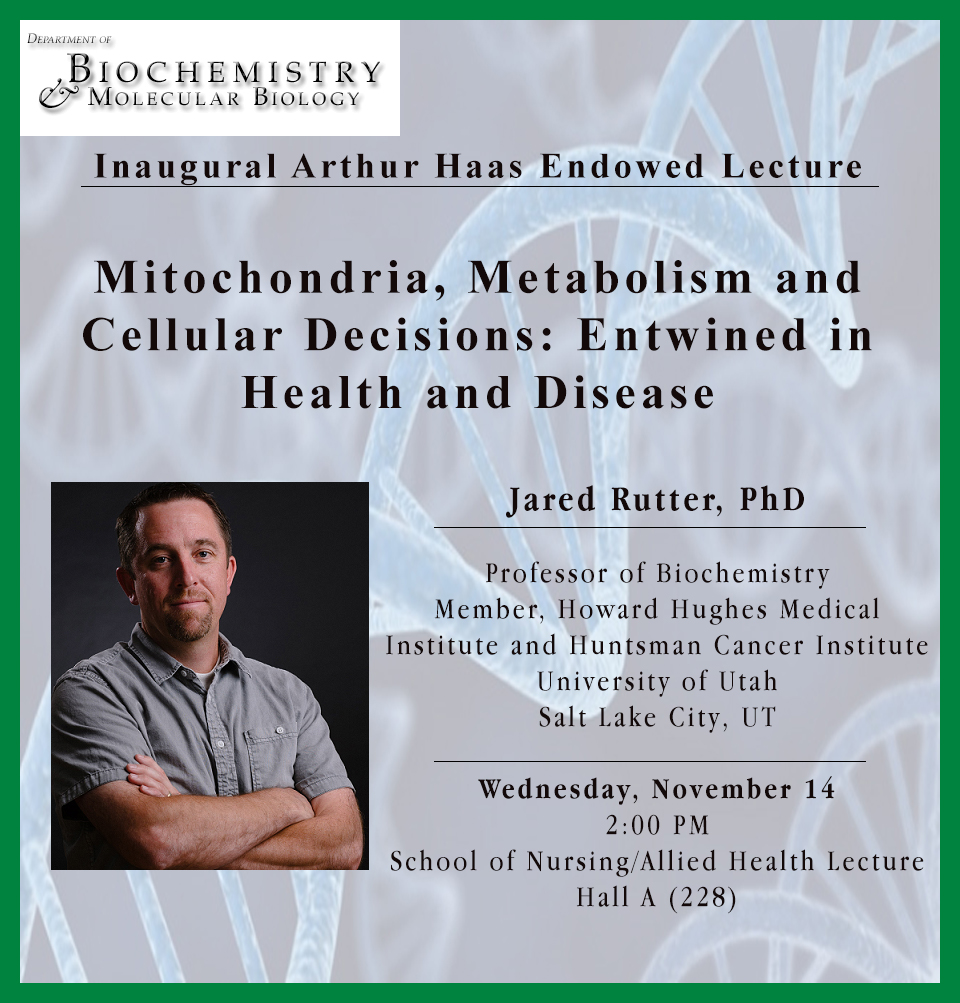
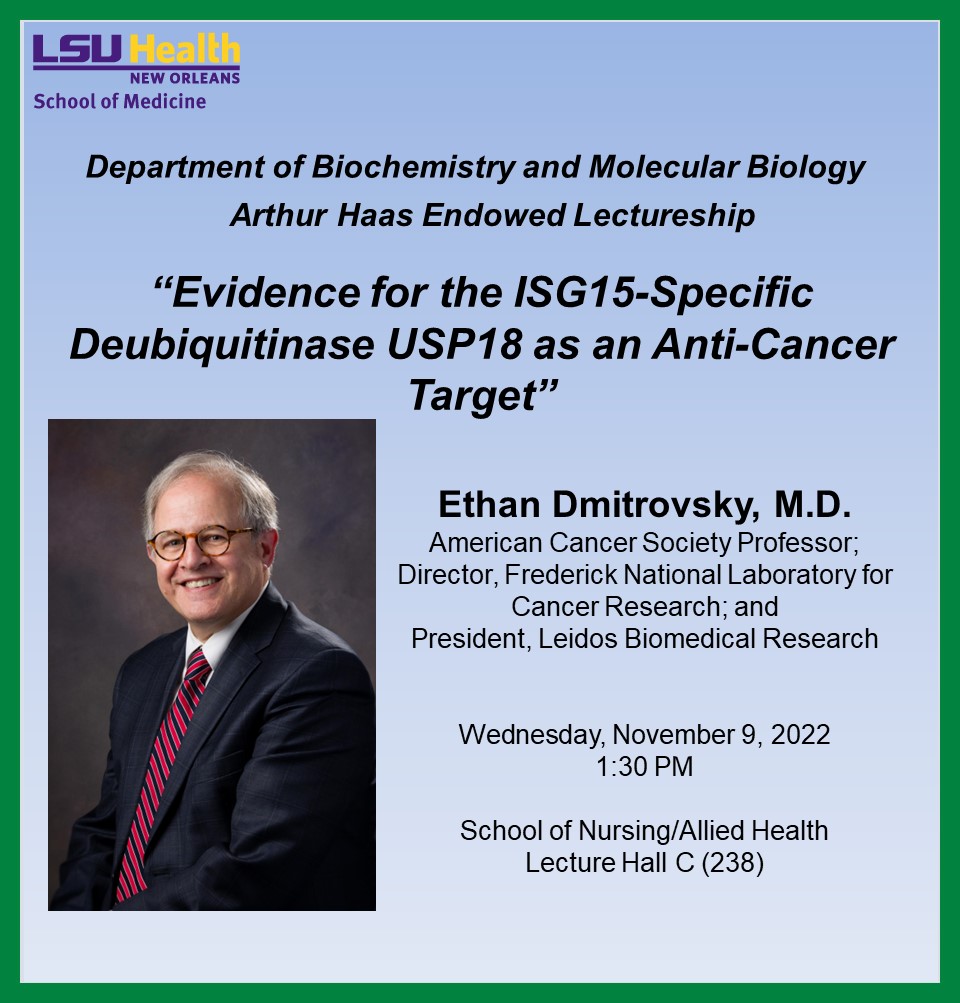
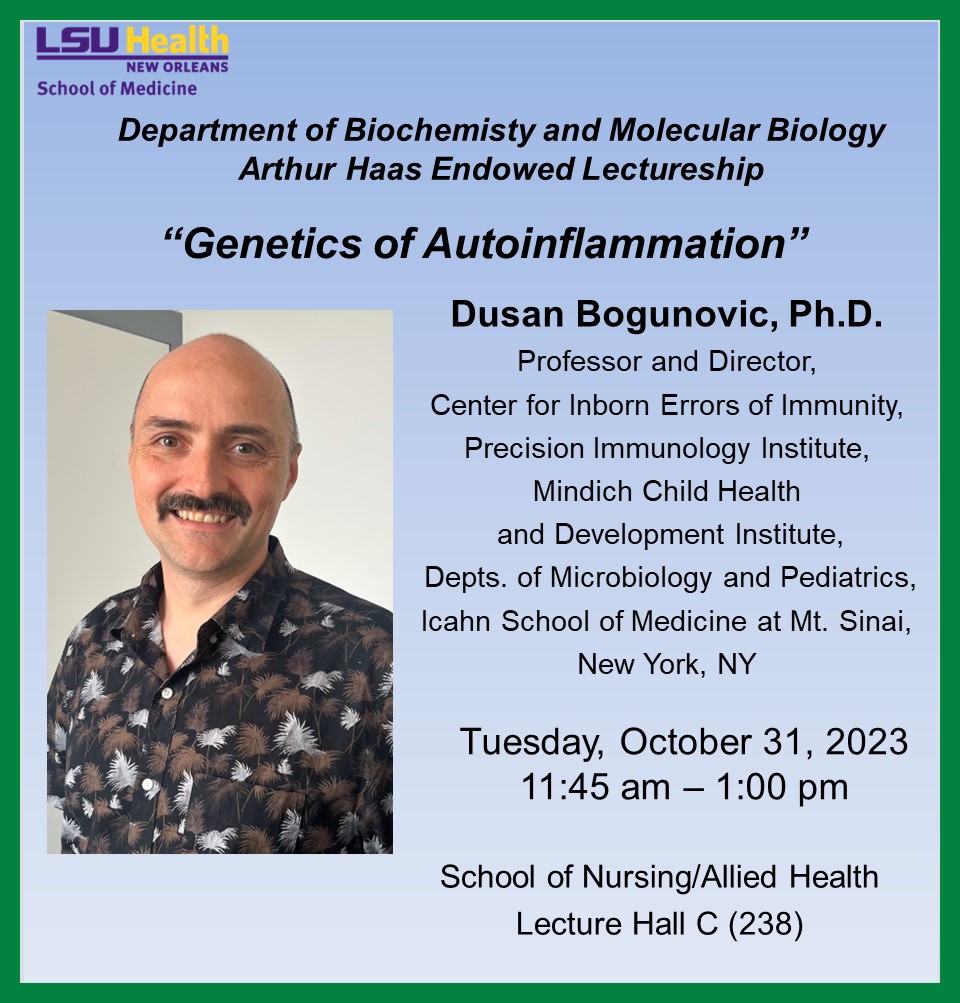
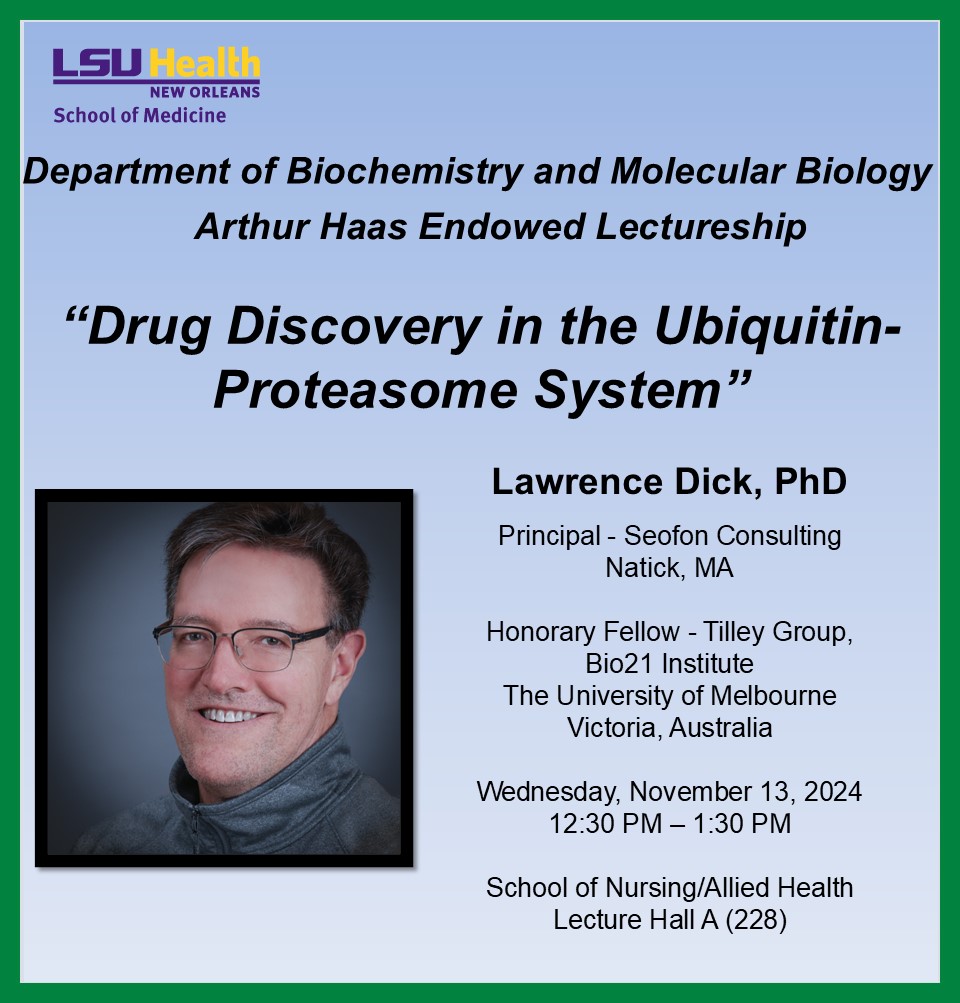
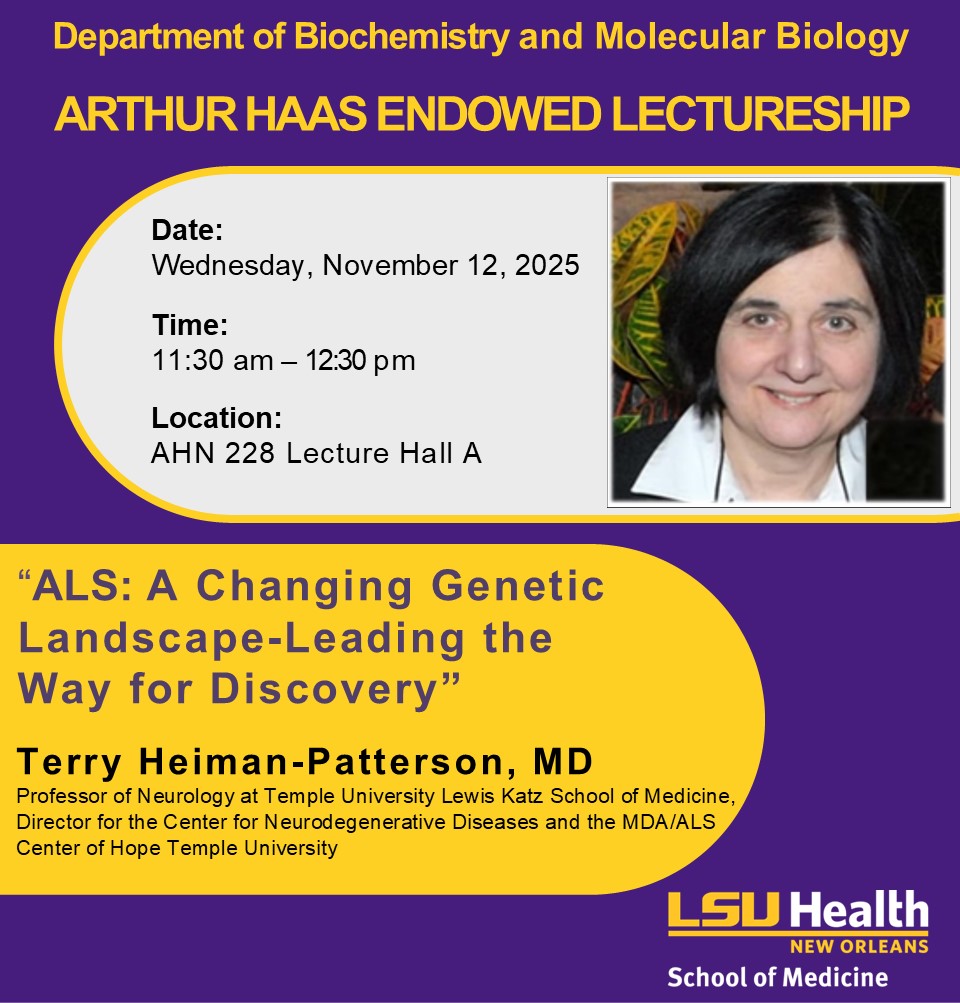
Event Pictures
